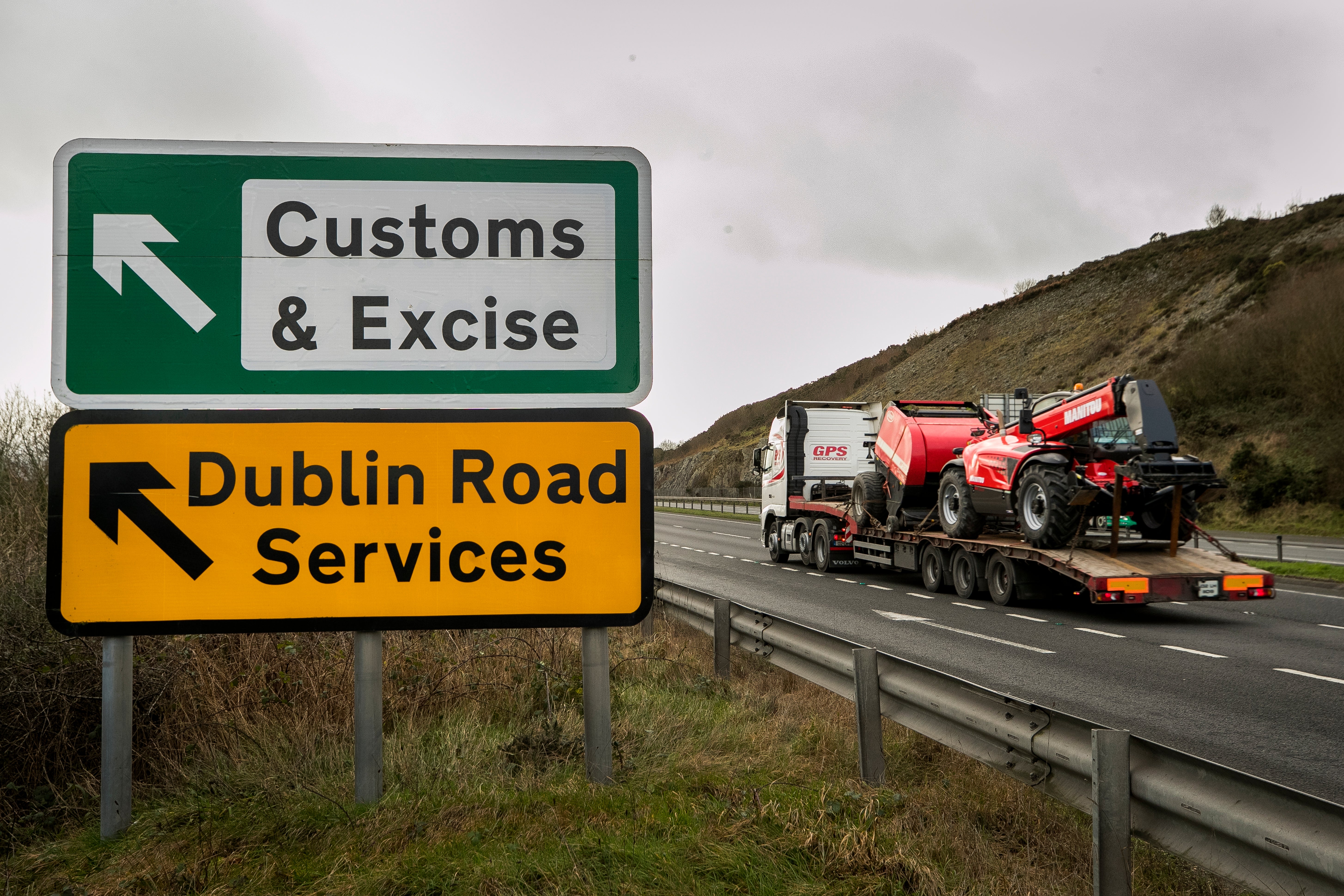Why the new NI Protocol Act will fail to restore power-sharing
In an EU-UK trade war, it is hard to see how institutions in Belfast could function at all says Sean O’Grady


It may not make much sense but the government’s case for tearing up most of the Northern Ireland Protocol (NIP) is at least internally consistent.
At its simplest, foreign secretary Liz Truss, and Northern Ireland secretary Brandon Lewis argue that the Democratic Unionist Party, the majority voice within Unionism, can only be persuaded to end their boycott of power-sharing institutions by radically changing the NIP through an act of Parliament.
But it takes two to tango. If the NIP Bill becomes law, it’s likely that Sinn Fein, and possibly other parties, would then boycott the Assembly and Executive in their turn. Just like the DUP, Sinn Fein, with the largest representation in the Assembly, possesses a veto, so if it refuses to take part in forming an executive then Stormont cannot function. Sinn Fein, like the DUP, have a solid track record of pulling out of the administration as politics demands. Sinn Fein have also warned about the “colossal political and economic impact” of scrapping most of the NIP.
The NI Protocol Act will thus almost certainly fail in its principal aim of restoring responsible devolved government in the province, leaving matters back at square one.
Indeed, the Bill, if enacted, might trigger a trade war with Europe. That makes a further fracture in cross-party relations in Northern Ireland still more likely, because even the present regime of checks on goods would become much more onerous, with the collection of tariffs both ways piled on top of the other bureaucracy - even under a British-run regime.
London’s aggressive approach does not help matters. Liz Truss says the EU “must” accept the changes the UK government is making. But that is for Brussels, Paris and Berlin to judge, with the White House backing them up. The underlying reality remains that the UK needs market access to the EU more than the EU needs access to the UK, and the UK is the more desperate for a trade deal with America. President Biden and Congress seem not to have that as a priority.
There is presently no indication that the EU is prepared to do exactly as the UK wishes, or anything like it, and they’ve already promised legal action and hinted at further retaliatory measures. This would present further perils. In effect, more trade controls between the UK and EU means more checks between the UK and Ireland, and that means either more checks at the Britain-Northern Ireland border (down the Irish Sea), or an economic border on the island of Ireland. Either would mean trouble. In a UK-EU trade war, life would change again for businesses, especially in food and agriculture, in the North who enjoy easy access to the EU Single Market and thus Ireland for sales and supplies. They would be hit hard, and harder still by a return to violence.
If the EU-UK Trade and Co-operation Agreement was suspended completely, and full WTO terms imposed, it is difficult to see how the power-sharing institutions in Belfast could function at all, or the economy for that matter.
Another complicating factor is the UK government’s decision to replace the 1998 Human Rights Act with a new Bill of Rights. The GFA makes specific reference to the incorporation of the European Convention on Human Rights into UK law. Sinn Fein would no doubt argue that the new Bill of Rights is inferior, and in any case has not been agreed by all parties to the GFA. So the GFA would have been broken by Britain.
If Sinn Fein does boycott the NI Assembly and Executive, and the GFA goes into abeyance, what then happens?
So far as Sinn Fein is concerned, and as the largest party and winner of the last elections in the province, they would prefer direct rule from London - and from Dublin. Michelle O’Neill, Sinn Fein leader in Northern Ireland has said:
“If those elected to serve fail to restore the democratic institutions then it is not a case of direct rule from London on the cards, but joint authority from Dublin and London.
“And if the people decide, Sinn Féin hopes to lead that government from Dublin.”
At the next Irish election, due in or before 2025, Sinn Fein sees itself leading a government in Dublin (they lead in the opinion polls and are joint largest party in Dáil Éireann). Thus there would be a Sinn Fein Taoiseach, Mary Lou McDonald, who would be the counterpart of a Northern Irish First Minister “designate”, Michelle O’Neill. The pair would operate a simulacrum of an all-Ireland government, and their joint political aim would be simultaneous referendums to win a united Ireland by democratic consent, thus removing the Irish border issue.
It’s fair to say that is not the Brexit the DUP campaigned for, and a most unfortunate example of the law of unintended consequences.






Join our commenting forum
Join thought-provoking conversations, follow other Independent readers and see their replies
18Comments